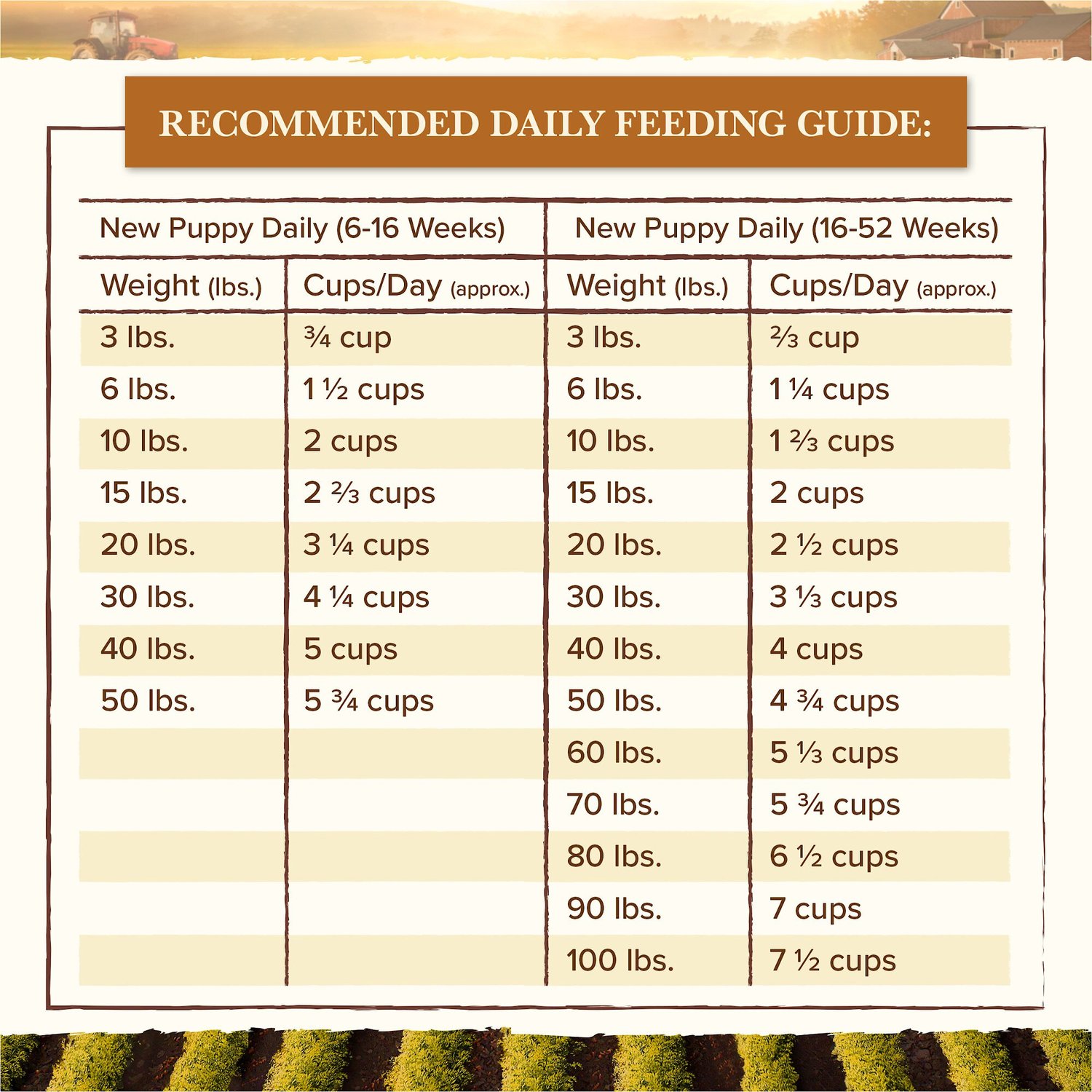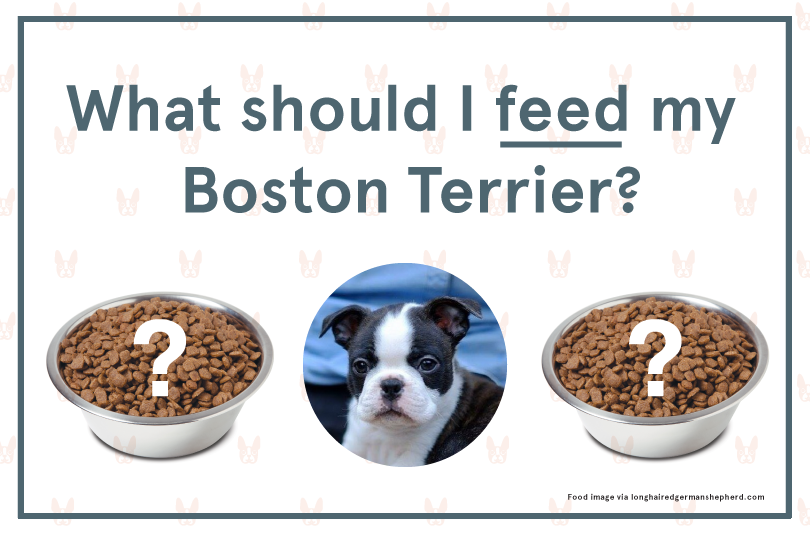Are you wondering how much food to feed your Boston Terrier puppy? Well, you’ve come to the right place! Feeding your furry friend the right amount of food is crucial for their growth and development. So, let’s dive into the world of Boston Terrier nutrition together and find out just how much food your adorable little pup needs.
Now, Boston Terrier puppies have a big appetite for such a small package. They’re like tiny devouring machines! It’s important to remember that their dietary needs differ from adult dogs. Their growing bodies require a balance of nutrients to thrive. So, finding the perfect amount of food to nourish your Boston Terrier puppy is key.
Your Boston Terrier puppy’s food requirements depend on various factors, such as their age, weight, and activity level. The general rule of thumb is to feed them a high-quality, age-appropriate puppy food and adjust the quantity based on their needs. Don’t worry; it’s not as complicated as it sounds. We’ll guide you on the right path to keeping your Boston Terrier puppy happy and healthy with the perfect amount of food. So, let’s get started!

How Much Food Do You Feed a Boston Terrier Puppy?
Welcoming a Boston Terrier puppy into your home is an exciting time, but it also comes with important responsibilities, such as ensuring they receive the proper nutrition. Feeding a Boston Terrier puppy the right amount of food is crucial for their overall health and development. In this article, we will explore the optimal feeding guidelines for Boston Terrier puppies, along with tips on establishing a feeding schedule and maintaining a balanced diet.
Feeding Guidelines for Boston Terrier Puppies
When it comes to feeding your Boston Terrier puppy, it’s essential to follow age-appropriate guidelines. During the first few weeks of life, Boston Terrier puppies rely solely on their mother’s milk. However, once they reach around four weeks of age, you can gradually introduce them to solid puppy food. Start with small portions soaked in water or puppy formula to make it easier for them to chew and digest.
Between the ages of 8 to 12 weeks, a Boston Terrier puppy should be fed four small meals per day. Each meal should consist of high-quality puppy food specifically formulated for small breeds. Look for brands that include ingredients like lean protein, whole grains, fruits, and vegetables. It’s important to note that the amount of food needed per meal will vary based on the individual puppy’s size, metabolism, and activity level.
As your Boston Terrier puppy grows, you can gradually reduce the number of meals and increase the portion size. By the time they reach three to six months of age, you can transition to feeding them three meals a day. From six months onward, two meals per day should be sufficient. However, it’s crucial to monitor their weight and adjust the portion size accordingly to prevent under or overfeeding.
The Importance of a Feeding Schedule
Establishing a consistent feeding schedule for your Boston Terrier puppy is crucial for their overall health and well-being. Dogs thrive on routine, and having set meal times helps regulate their digestion and prevent them from becoming overly hungry or bloated. A consistent feeding schedule also makes it easier to monitor their appetite and detect any changes in their eating habits, which could indicate an underlying health issue.
It’s recommended to feed your Boston Terrier puppy at the same times each day, ideally in the morning and evening. This routine will help prevent them from begging for food or becoming anxious when mealtime approaches. However, remember that every puppy is unique, and their individual needs may require slight adjustments to the feeding schedule.
In addition to regular meals, it’s important to provide your Boston Terrier puppy with access to freshwater at all times. Hydration is essential for their overall health, especially during hot weather or periods of increased physical activity. Ensure that their water bowl is clean and refilled regularly.
Maintaining a Balanced Diet
A balanced diet is essential for the overall health and development of your Boston Terrier puppy. It’s crucial to feed them high-quality puppy food that meets their nutritional needs. Look for labels that indicate the food is specifically formulated for small breeds and includes ingredients like real meat, whole grains, fruits, and vegetables.
Avoid feeding your Boston Terrier puppy table scraps or human food, as these can lead to digestive issues, obesity, and nutrient imbalances. It’s important to resist the temptation to give in to their adorable puppy eyes and stick to the recommended puppy food. If you have any concerns about their diet or specific dietary restrictions, consult with your veterinarian for professional guidance.
In addition to a well-balanced diet, proper portion control is essential to prevent overweight or obesity in your Boston Terrier puppy. Follow the guidelines provided by the puppy food brand and adjust the portion size based on their growth and activity levels. Regularly monitor their weight and body condition to ensure they are maintaining a healthy physique.
Key Takeaways: How Much Food Do You Feed a Boston Terrier Puppy?
- Boston terrier puppies should be fed according to their age and weight.
- Consult with your veterinarian to determine the appropriate amount of food for your puppy.
- Provide high-quality puppy food that is specially formulated for small breeds.
- Feed your Boston terrier puppy multiple small meals throughout the day.
- Avoid overfeeding to prevent obesity and related health problems.
Frequently Asked Questions
When it comes to feeding your Boston Terrier puppy, it’s important to know the right amount of food to give them to ensure their health and well-being. Here are some common questions and answers to help guide you.
1. What is the recommended daily amount of food for a Boston Terrier puppy?
The recommended daily amount of food for a Boston Terrier puppy is typically around one to one and a half cups of high-quality puppy food, split into three meals throughout the day. However, it’s important to remember that each puppy is unique and may require more or less food depending on their size, activity level, and metabolism.
Monitoring your puppy’s weight and body condition is key. If you notice that they are gaining too much weight, you can slightly reduce their portion size. On the other hand, if they are not gaining enough weight or seem hungry, you may need to increase their food intake. Consulting with your veterinarian can also provide personalized guidance.
2. Should I free-feed or have scheduled mealtimes for my Boston Terrier puppy?
Having scheduled mealtimes is generally recommended for Boston Terrier puppies. This helps create a routine, making it easier to monitor their food intake and potty training. It also prevents them from overeating, which can lead to obesity and related health problems.
It’s best to offer their meals at specific times of the day and give them around 15-20 minutes to finish eating. If they haven’t finished their food within that timeframe, remove the bowl until the next scheduled meal. This helps establish healthy eating habits and prevents them from becoming picky eaters.
3. Is it okay to give my Boston Terrier puppy treats in addition to their regular meals?
Yes, it’s perfectly fine to give your Boston Terrier puppy treats in addition to their regular meals, but moderation is key. Treats should make up only a small portion of their daily calorie intake, as excessive treats can lead to weight gain. It’s important to choose healthy, puppy-specific treats and factor them into their overall daily food allowance.
When giving treats, be mindful of the ingredients and avoid those that may be harmful to dogs, such as chocolate or foods with high levels of sodium. Treats can be used as rewards during training sessions or to provide mental stimulation, but always keep their nutritional needs in mind.
4. How should I adjust my Boston Terrier puppy’s food as they grow?
As your Boston Terrier puppy grows, their nutritional needs will change. It’s important to adjust their food portion size accordingly. Around four to six months of age, you can start gradually reducing the number of meals from three to two per day. You can also increase the amount of food at each meal to accommodate their growth.
Once your Boston Terrier puppy reaches adulthood, usually around one year of age, you can transition them to adult dog food and adjust their portion size based on their weight, activity level, and overall condition. Regular monitoring and consultation with your veterinarian will help ensure they continue to receive the appropriate amount of food.
5. What signs should I look for to ensure my Boston Terrier puppy is getting the right amount of food?
Monitoring your Boston Terrier puppy’s body condition is crucial in determining if they are getting the right amount of food. Ideally, you should be able to feel their ribs easily without seeing them, and they should have a visible waistline when viewed from above. If they appear overweight, you may need to decrease their food portion size, while if they appear underweight, you may need to increase it.
Additionally, pay attention to their energy levels, coat quality, and overall demeanor. If they seem lethargic, have a dull coat, or are excessively hungry all the time, it may indicate that they are not getting enough food. In such cases, consulting with your veterinarian can help identify any underlying issues and ensure your puppy’s nutritional needs are being met.

Summary
Feeding a Boston Terrier puppy is an important part of their health and growth. It’s best to follow the guidelines on the dog food packaging for the recommended daily amount. Adjusting the portions based on their individual needs and activity level will help keep them in good shape. It’s also crucial to provide fresh water at all times and consult a vet if there are any concerns or questions about your puppy’s diet. Remember, a well-fed and happy pup is a healthy pup!
In addition to the right amount of food, it’s important to establish a feeding schedule to help with potty training. It’s best to feed them at specific times throughout the day rather than leaving food out all the time. Finally, as your puppy grows, it’s important to adjust their portions accordingly to ensure they maintain a healthy weight. By properly nourishing your Boston Terrier puppy, you’ll be setting them up for a lifetime of good health and happiness.
